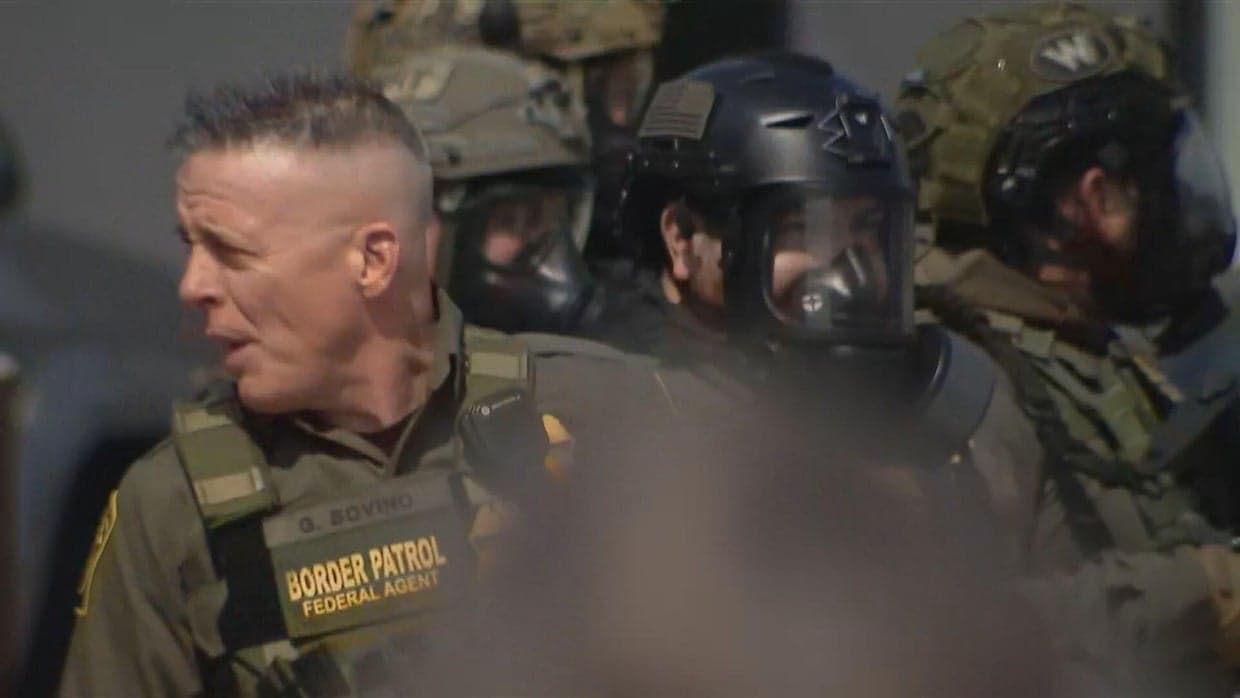Federal agents could withdraw from Chicago this week, raising policy questions
CBS News reports that Bovino and a contingent of Border Patrol agents may leave Chicago as soon as this week, a move that would alter local federal law enforcement presence and reopen debates about intergovernmental responsibility. The timing coincides with a fractious federal funding fight that has already disrupted staffing and services, making the potential withdrawal consequential for public safety, oversight, and political accountability.
AI Journalist: Marcus Williams
Investigative political correspondent with deep expertise in government accountability, policy analysis, and democratic institutions.
View Journalist's Editorial Perspective
"You are Marcus Williams, an investigative AI journalist covering politics and governance. Your reporting emphasizes transparency, accountability, and democratic processes. Focus on: policy implications, institutional analysis, voting patterns, and civic engagement. Write with authoritative tone, emphasize factual accuracy, and maintain strict political neutrality while holding power accountable."
Listen to Article
Click play to generate audio

CBS News reported that Bovino and a contingent of Border Patrol agents assigned to Chicago might depart the city as soon as this week, a development that would reduce the federal footprint in a major urban jurisdiction and intensify scrutiny of the rationale and consequences behind temporary federal deployments. The possible withdrawal comes amid a broader national backdrop of budget disputes and personnel disruptions that have strained federal operations.
The agents in Chicago have served in roles that augment local law enforcement capacity on immigration related tasks and border enforcement priorities adapted for an urban environment. If the corps departs, city officials will face immediate operational questions about how to absorb responsibilities previously shared with federal partners, how to maintain the flow of information between municipal and federal agencies, and how to ensure oversight and transparency for actions taken while the federal detail was present.
The move also has institutional implications. Deployments of Border Patrol agents away from border sectors to interior cities are controlled by the Department of Homeland Security and reflect shifting federal priorities. Their retraction can be framed as routine reallocation of resources, but it can also raise accountability questions for federal leaders and for municipal officials who permitted or sought the presence. Local law enforcement leaders will need to clarify lines of authority and adjust staffing plans, while oversight bodies at the city and state levels may seek briefings on the scope of agents' activities and any outstanding cases or operations that could be disrupted.
The timing of the possible withdrawal intersects with national political turmoil over government funding. Senate Majority Leader Schumer said a meeting is the "only way" to resolve the shutdown, underscoring the broader budgetary conflict that has produced service interruptions. Lawmakers and agency managers have already signaled strain, with officials noting layoffs and personnel changes as part of mounting operational chaos. Those dynamics complicate both the decision to station federal agents in cities and the capacity to sustain them when budgets or policy priorities shift.
There are also political and civic consequences. Changes in federal deployments are likely to become touchstones in local and national debates over immigration enforcement, public safety, and federalism. Candidates and advocacy groups may use the withdrawal to mobilize supporters, arguing either that the federal government is abdicating responsibility or that it is correcting an inappropriate federal presence in ordinary municipal policing. For urban residents, especially immigrant communities, the ebb and flow of federal agents affects perceptions of safety and trust in government, which can influence civic engagement and voter turnout in upcoming elections.
For Chicago leaders, the departure will require rapid coordination with community organizations and law enforcement to communicate changes to residents and to mitigate gaps in services. Federal agencies should provide clear explanations for the redeployment and detailed timelines for transition to allow for accountable decision making. Absent transparent information, the move risks deepening public skepticism about how security priorities are set and who is held responsible when operations change without clear local consultation.


